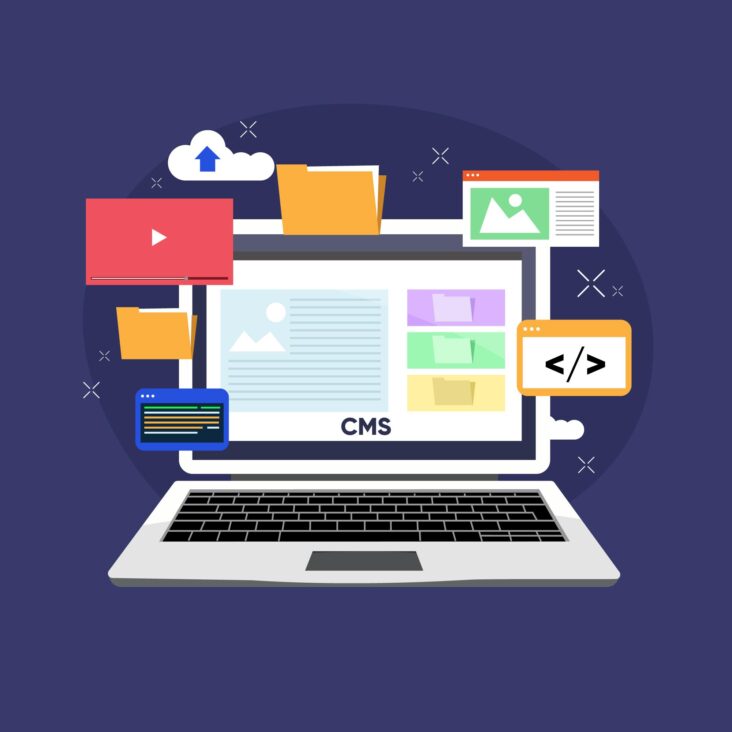In the vast realm of web development, PHP stands tall as a cornerstone language, powering numerous websites and applications. A critical decision in PHP development revolves around selecting the most suitable framework. The quest for the ideal PHP framework involves navigating through a myriad of options, exploring different PHP frameworks, embracing new contenders, and understanding the nuances of these web frameworks in PHP.
Understanding the PHP Framework Landscape
PHP frameworks are the scaffolding upon which developers build robust and scalable web applications. Each framework offers its unique set of features, architectural patterns, and philosophies. The diversity in PHP frameworks allows developers to choose based on project requirements, coding preferences, scalability needs, and community support.
Exploring Different PHP Frameworks
Laravel
Laravel reigns as one of the most popular which PHP frameworks, known for its elegant syntax, expressive codebase, and extensive ecosystem. With features like ORM (Object-Relational Mapping), routing, and a modular packaging system, Laravel simplifies complex tasks and accelerates development.
Symfony
Renowned for its flexibility and modularity, Symfony empowers developers to create both small-scale applications and enterprise-level projects. Its components, reusable libraries, and robust architecture make it a preferred choice for developers seeking scalability and maintainability.
CodeIgniter
CodeIgniter’s lightweight footprint and straightforward setup appeal to developers looking for a simple yet powerful framework. Its emphasis on speed, ease of use, and broad compatibility continues to attract a loyal user base.
Yii
Yii embraces the “Don’t Repeat Yourself” (DRY) principle, streamlining development by reducing repetitive coding tasks. This high-performance framework suits projects demanding speed, security, and robust caching mechanisms.
CakePHP
CakePHP’s convention over configuration approach, coupled with built-in security features, makes it an excellent choice for rapid application development. Its scaffolding capabilities enable developers to swiftly create prototypes and iterate through ideas.
Zend Framework
Renamed Laminas, this enterprise-ready framework offers a collection of professional PHP packages that cater to diverse development needs. Its extensible architecture and robust security features make it suitable for large-scale projects.
Embracing the Rise of New PHP Frameworks
The evolution of the PHP ecosystem witnesses the emergence of new contenders aiming to redefine web development paradigms.
Laminas Mezzio
Building upon the Zend Framework’s legacy, Laminas Mezzio focuses on creating lightweight and flexible applications using middleware architecture. Its modular approach and emphasis on interoperability cater to modern development practices.
Phalcon
Phalcon distinguishes itself by being a C-extension-based PHP framework, boasting unparalleled execution speeds and lower resource consumption. Its innovative architecture offers high performance without compromising on features or ease of use.
Laminas API Tools
Laminas API Tools provides a set of robust tools for rapidly building and documenting APIs. With its emphasis on RESTful API development, it simplifies the creation and maintenance of APIs for various applications.
Factors Influencing the Selection
Project Requirements
Understanding the specific needs of your project—be it scalability, performance, or ease of maintenance—guides the choice of framework. Laravel’s feature-rich ecosystem may suit complex applications, while CodeIgniter’s simplicity may suffice for smaller projects.
Learning Curve
Consider your team’s familiarity with a particular framework. Symfony’s steep learning curve might be a challenge for beginners, while the simplicity of CodeIgniter might accelerate the development process for less experienced developers.
Community and Support
A vibrant community and robust support ecosystem are invaluable. Laravel’s extensive community and comprehensive documentation ensure quick resolutions to issues, while emerging frameworks might lack the same level of resources.
Scalability and Performance
For projects requiring high scalability and performance, Phalcon’s exceptional speed due to its C-extension base might be a game-changer, whereas Yii’s emphasis on performance could be beneficial for certain applications.
Security
Frameworks like CakePHP, known for their built-in security features, might be preferable for projects with stringent security requirements, while Laravel’s focus on secure coding practices also makes it a strong contender.
Harnessing Framework Capabilities
Rapid Application Development (RAD)
Frameworks like CakePHP, with their scaffolding features, enable rapid prototyping and development. They empower developers to swiftly create functional prototypes, facilitating faster iterations and feedback loops.
Enterprise-Grade Solutions
For enterprise-level applications demanding robustness and scalability, Symfony and Laravel stand out. Their extensive libraries, mature ecosystems, and adherence to best practices make them suitable for large-scale projects.
RESTful API Development
In the era of interconnected systems, frameworks like Laminas API Tools streamline RESTful API development. Their intuitive interfaces and tools simplify the creation and management of APIs, catering to the needs of modern applications.
Microservices Architecture
With the rise of microservices architecture, lightweight frameworks like Laminas Mezzio gain prominence. Their modular approach and middleware architecture facilitate the creation of scalable and loosely coupled microservices.
The Current Landscape and Emerging Trends
Modern PHP Practices
Frameworks are evolving to embrace modern PHP practices. They are integrating features like dependency injection, asynchronous programming, and reactive programming patterns to align with the changing landscape of PHP development.
Containerization and Cloud-Native Solutions
The convergence of PHP frameworks with containerization technologies like Docker and orchestration platforms like Kubernetes is a burgeoning trend. Frameworks are adapting to support seamless deployment in cloud-native environments, enabling scalability and portability.
Emphasis on Performance and Efficiency
The pursuit of performance optimization continues. Frameworks like Phalcon, renowned for their speed and resource efficiency, set a precedent for other frameworks to prioritize performance enhancements without compromising on features.
Community-Driven Innovation
The strength of PHP frameworks lies in their communities. The community-driven innovation ensures frameworks stay relevant by incorporating user feedback, enhancing features, and addressing emerging needs in the development landscape.
The Future of PHP Frameworks
AI and Automation
The integration of AI and automation into PHP frameworks is on the horizon. Predictive coding assistance, automated code generation, and intelligent debugging tools might become standard features, boosting developer productivity.
Progressive Web Applications (PWAs)
As PWAs gain prominence, frameworks will adapt to cater to their requirements. Frameworks that offer robust support for service workers, offline capabilities, and responsive design will become more sought after.
Continued Evolution
PHP frameworks will continue to evolve, adapting to changing paradigms in web development. They will focus on improving developer experience, optimizing performance, enhancing security, and accommodating emerging technologies.
Conclusion: Finding Your Ideal PHP Framework
The PHP framework quest isn’t about finding a universal “best” framework but discovering the perfect fit for your project. Evaluate the strengths, weaknesses, and alignment with your project requirements. Consider the PHP framework landscape as an expansive spectrum, each framework a unique color offering its distinct advantages.
Ultimately, delve into the documentation, experiment with different frameworks, gauge community support, and weigh the trade-offs. Let the nature of your project, team expertise, scalability needs, and performance benchmarks be the guiding stars in your quest for the ideal PHP framework.
In the dynamic world of web framework php development, the pursuit of the perfect PHP framework continues, evolving alongside the changing demands and innovations of the digital landscape.
This post was created with our nice and easy submission form. Create your post!






Comments
0 comments